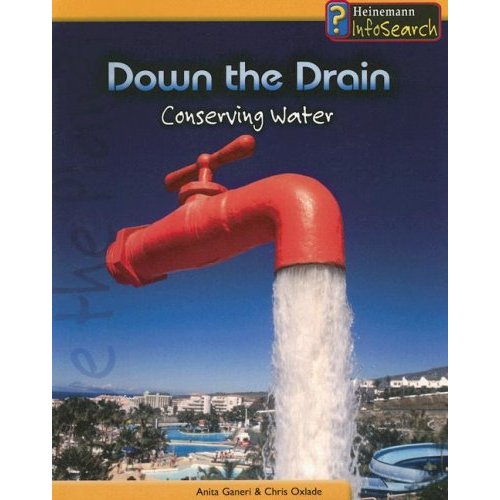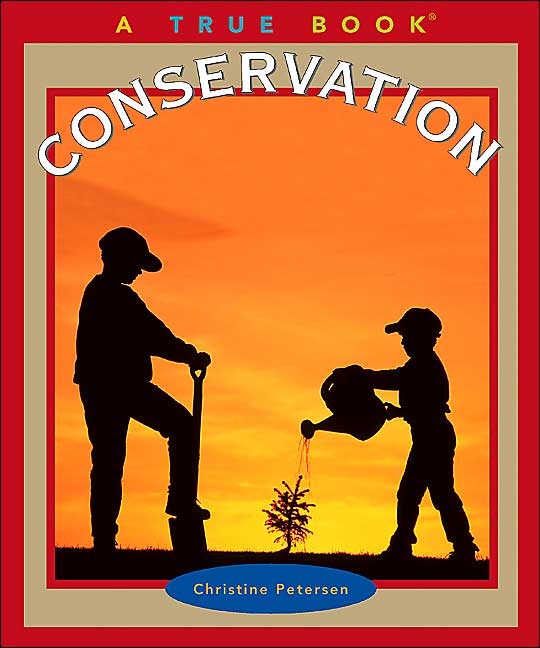| Water Conservation Further Reading |
|
Home Problem Causes Solution Fruther Reading Games and Activies |
 Down The Drain: Conserving Water by Chris
Oxlade and Anita Ganeri The many ways in which we use water – for drinking, washing in, cooking etc; vast amounts of water are also used in farming (it takes about 500 liters of water to produce one orange), industry, leisure and so on; Taking Action: keep a water diary to see how much water you use in 24 hours and what you use it for; why wasting water is a problem for the environment (danger of drought, water shortages); Science Behind It: why your body needs water to function
Conservation by Christine Petersen
Conservation describes some of the earth's natural resources,
their importance, and how they can be safeguarded. |
